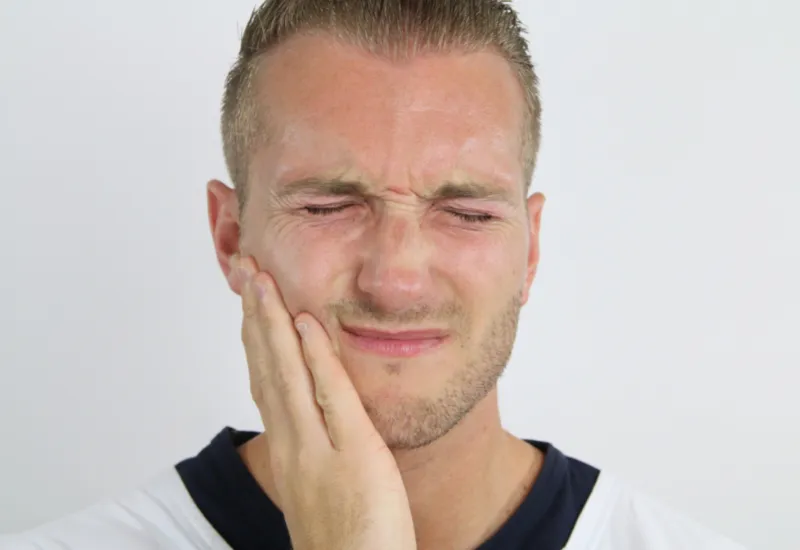Does it often happen that you take a sip of hot, freshly brewed coffee and immediately feel a painful sensation in your teeth? Or do you spit out after brushing your teeth and notice blood? These are signs of some of the common dental and oral problems. The good news is that most of these diseases can be treated well and prevented from happening in the future. Read this article to understand the signs and symptoms of some common dental and oral issues.
Tooth decay
One of the frequent reasons a person visits a dentist is tooth decay, also known as dental caries. It occurs due to the demineralization of enamel, which is the outermost protective layer around your tooth structure. In the initial stages, you may notice a small white patch that slowly progresses to a brownish color. In the later stages, a small cavity develops, with a rough texture. You may experience minor pain and increased sensitivity in this stage. If the cavity continues to progress due to microbial activity, it reaches the pulp of the tooth. Severe pain, hypersensitivity to hot and cold, food impaction, and difficulty in chewing may be noticed. A dental abscess may form in later stages if the tooth is not treated.
Gingivitis
Gingivitis refers to inflammation of the gums. It develops due to plaque accumulation around teeth, which serves as a home to many bacteria inside your mouth. Normal, healthy gums have a pink color and are attached firmly to the tooth. In the early stages of gingivitis, you may notice redness and minor swelling in your gums. If it continues to progress, gingival bleeding occurs during brushing or spontaneously at times. If left untreated, late-stage gingivitis can progress to periodontitis.
Periodontitis
Periodontitis means inflammation of the periodontium. Periodontium is the protective and supportive structure that holds our tooth in its socket. The early stages of periodontitis often resemble gingivitis. As it progresses, your gums start to detach from your tooth structure. A pocket is formed, which progresses in a downward direction. Loss of attachment and bone structure are the leading signs of periodontitis. If you do not receive treatment at an early stage, you might end up losing one or more teeth as a result of this disease.
Sensitivity
Tooth sensitivity is a very common complaint. It is often felt like a response to a hot or cold stimulus, such as drinking tea or eating ice cream. If the outer layer of enamel becomes thin or compromised, the inner layer of dentin is exposed, which perceives hot and cold sensations. This also happens if your root becomes exposed, which is not covered by enamel. You may feel sensitivity in a single tooth, or it may be generalized. If a tooth is carious, cracked, or associated with a dental abscess, you may also feel pain and pressure on biting.
Oral ulcers
Oral ulcers can occur due to a variety of different causes. They may occur due to traumatic injury, viral, bacterial, or fungal infections, genetic diseases, immunocompromising diseases, allergies, nutritional deficiency, hormonal imbalance, oral cancer, and multiple other factors. The symptoms of oral ulcers can vary depending on their cause. If you are about to develop cold sores or canker sores, you may experience a tingling sensation in the area soon to be affected. Cold sores appear on the lips and outside the mouth, while canker sores appear inside the mouth. If you develop ulcers due to a traumatic injury, they will appear reddish and painful to touch. Thrush or oral candidiasis is also common in which a whitish layer forms on the tongue, gums, or other parts of the mouth.
Bad breath
Bad breath is also known as halitosis. The most common cause of bad breath is a lack of oral hygiene maintenance. It can also occur due to dental caries, gingivitis, periodontitis, thrush, and other reasons. If you feel like you have bad breath, you can check it by licking the back of your wrist and smelling it. If there is a dental or oral problem inside your mouth, you may also develop other symptoms such as toothache, sensitivity, or bleeding gums.
If you experience any of the above symptoms, schedule a dental checkup as soon as possible. It can help eliminate the causes at an earlier stage and avoid future complications. Even if it is only a subjective feeling, it is better to open up to your dentist about it to get proper counseling.
Visit cura4u for further details on medical conditions, diagnostic tests, and online consultation. Register yourself and your loved ones today for optimum healthcare services!











